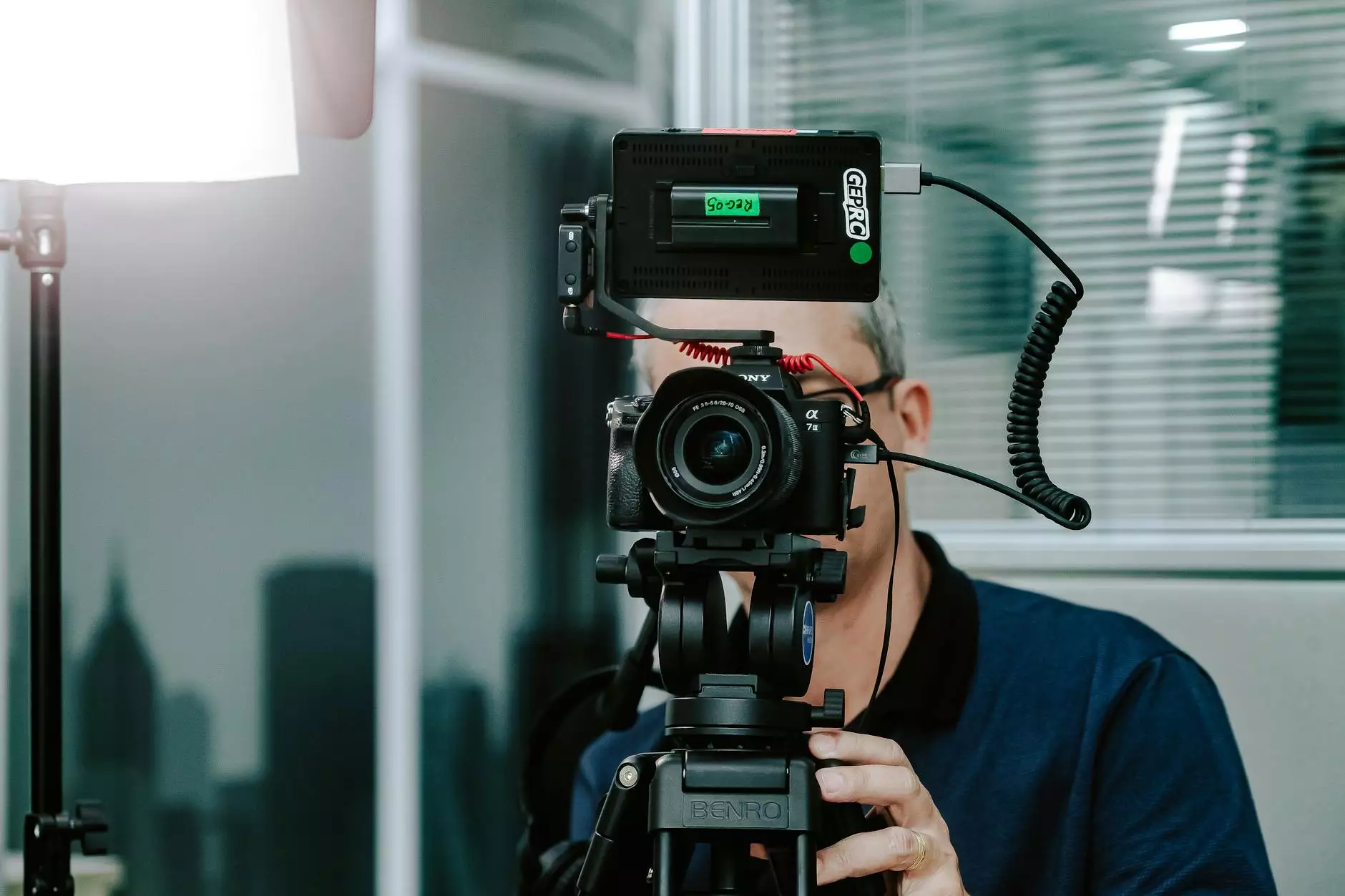Understanding the Role of a Videographer in Business

In the rapidly evolving digital landscape, businesses are constantly seeking innovative ways to connect with their audience. One of the most effective methods of achieving this is through high-quality video content. This is where the expertise of a professional videographer becomes invaluable. In this comprehensive article, we will delve into the essential role of a videographer in businesses, explore the nuances of video/film production, and highlight key strategies for utilizing video to enhance brand visibility and engagement.
The Importance of Video in Modern Business
Video has emerged as a dominant force in content marketing. According to recent studies, approximately 86% of businesses use video as a marketing tool, and 93% of marketers say that video has helped them increase brand awareness. Here are several reasons why incorporating video into business strategies is crucial:
- Enhanced Engagement: Videos are more engaging than static content. They capture attention quickly and can convey messages more effectively.
- Improved SEO Rankings: Google prioritizes video content. Businesses that use video can enjoy higher search engine rankings.
- Storytelling Opportunity: Video allows companies to convey their brand story in a compelling manner, fostering emotional connections with the audience.
- Broader Reach: Video content is highly shareable on social media platforms, increasing its potential reach and visibility.
What Does a Videographer Do?
A videographer is a professional who specializes in capturing and processing video footage. Their role includes various functions that contribute to the overall production process. Here are some critical responsibilities of a videographer:
1. Pre-Production Planning
The first stage of video production begins long before the camera rolls. A skilled videographer collaborates with clients to understand their vision, objectives, and the intended message of the video. This phase involves:
- Concept Development: Brainstorming and crafting the core concept of the video.
- Scriptwriting: Creating a script that outlines the narrative and dialogue.
- Storyboarding: Visual planning of scenes to create a cohesive flow.
- Location Scouting: Identifying suitable locations that align with the narrative.
2. Production
During the production phase, the videographer is responsible for capturing all necessary footage. This includes:
- Camera Operation: Utilizing state-of-the-art equipment to film high-quality video.
- Lighting Setup: Ensuring proper lighting to create the desired atmosphere.
- Audio Capture: Recording clear and professional audio to complement the visuals.
- Directing Talent: Guiding on-screen talent to achieve the best performances.
3. Post-Production
Once filming is complete, the videographer enters the post-production phase. This critical stage involves:
- Editing: Combining footage, trimming and arranging clips, and ensuring a smooth narrative flow.
- Color Correction: Adjusting colors to enhance the visual appeal.
- Audio Mixing: Balancing sound levels, adding music, and ensuring audio quality.
- Final Output: Rendering the video in various formats suitable for different platforms.
Types of Business Videos Created by a Videographer
A proficient videographer can create a wide range of video content tailored to meet the specific needs of a business. Here are some common types of videos that they can produce:
1. Promotional Videos
Promotional videos are designed to showcase products or services. These videos highlight key features and benefits, driving viewer interest and enhancing sales potential.
2. Corporate Videos
Corporate videos communicate a company's vision, mission, and culture. They are typically used for internal purposes, such as employee training, or for external communications to enhance corporate image.
3. Testimonial Videos
Leveraging customer testimonials is a powerful way to build trust. A skilled videographer can capture genuine customer experiences, creating compelling narratives that resonate with potential clients.
4. Event Coverage
Whether it's a corporate event, conference, or product launch, documenting these gatherings through video allows businesses to share highlights and reach a larger audience.
5. Tutorials and How-To Videos
Tutorial videos provide step-by-step instructions on using a product. They add value by helping customers understand how to make the most out of the services offered.
Why Choose a Professional Videographer?
While many may consider DIY video production with smartphones or basic cameras, there are significant advantages to hiring a professional videographer:
- Expertise: Professional videographers possess in-depth technical knowledge, ensuring high-quality video production.
- Creative Vision: They bring a unique perspective and creativity that can elevate the quality of the content.
- Time Efficiency: Hiring a professional allows businesses to focus on their core operations while experts handle the video production process.
- Access to Quality Equipment: Professionals utilize top-of-the-line equipment for superior outputs.
Choosing the Right Videographer for Your Business
Selecting the right videographer is essential for successful video production. Here are key considerations:
1. Portfolio Review
Reviewing a videographer's portfolio provides insight into their style, quality, and previous work. Look for projects that align with your brand's vision.
2. Industry Experience
Consider a videographer with experience in your industry. Understanding industry nuances can dramatically improve the content's relevance.
3. Client Testimonials
Feedback from previous clients can provide a clearer picture of the videographer’s professionalism, creativity, and ability to meet deadlines.
4. Communication Skills
Effective communication is crucial in the collaborative process of video production. Choose someone who listens to your ideas and provides constructive feedback.
Conclusion
In conclusion, the role of a professional videographer in business cannot be overstated. They bring stories to life, enhance brand visibility, and provide businesses with a competitive edge in the digital marketplace. With the engaging power of video, companies can foster deeper connections with their audiences. As businesses like Esteban-Castle continue to embrace video marketing, investing in a skilled videographer will undoubtedly yield impressive returns. Embrace the world of video, and witness your business transform through the storytelling art captured by a talented videographer.
Now is the perfect time to elevate your brand's narrative through expertly crafted video content. Don't miss out on the opportunity to engage, inspire, and connect with your audience like never before!









